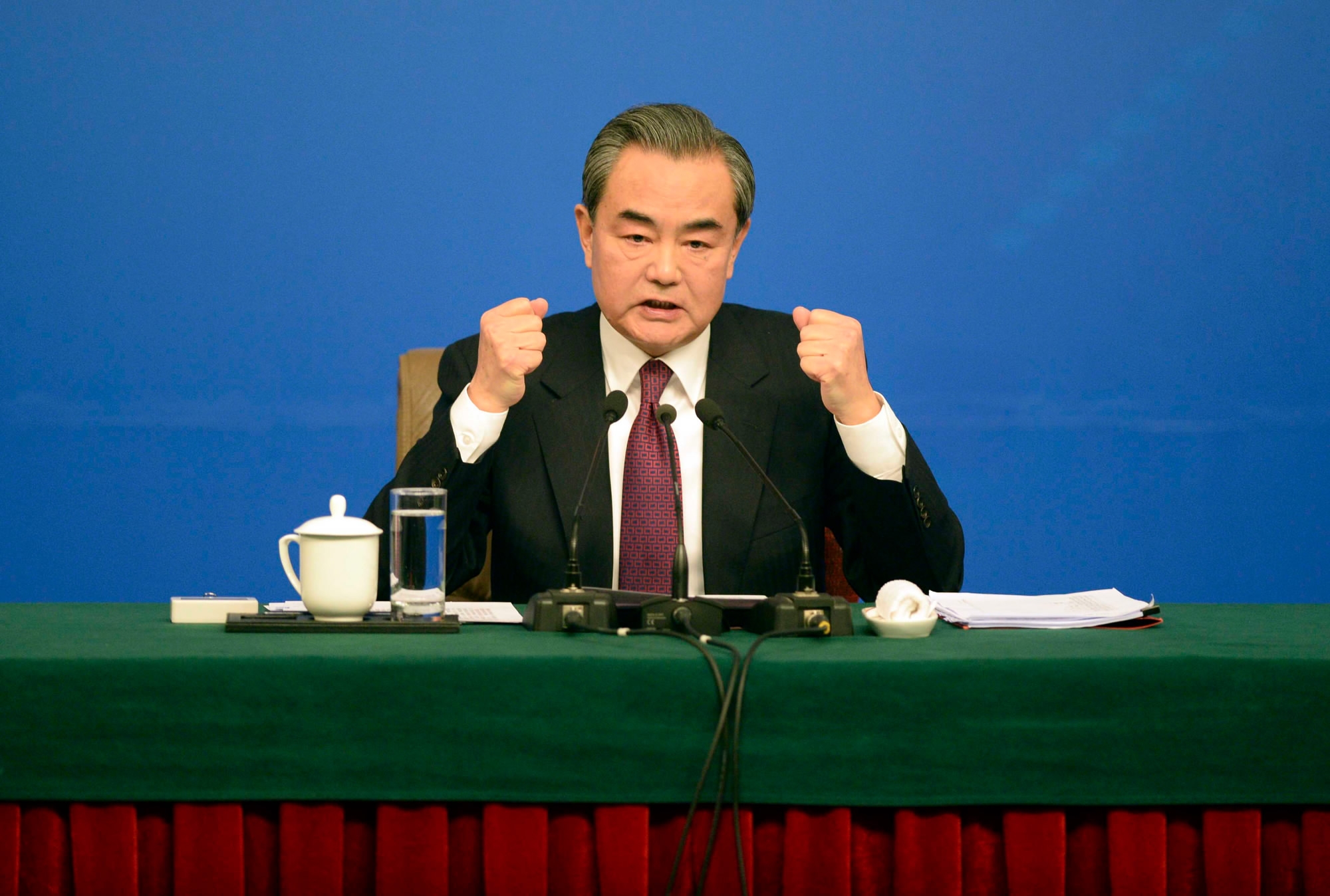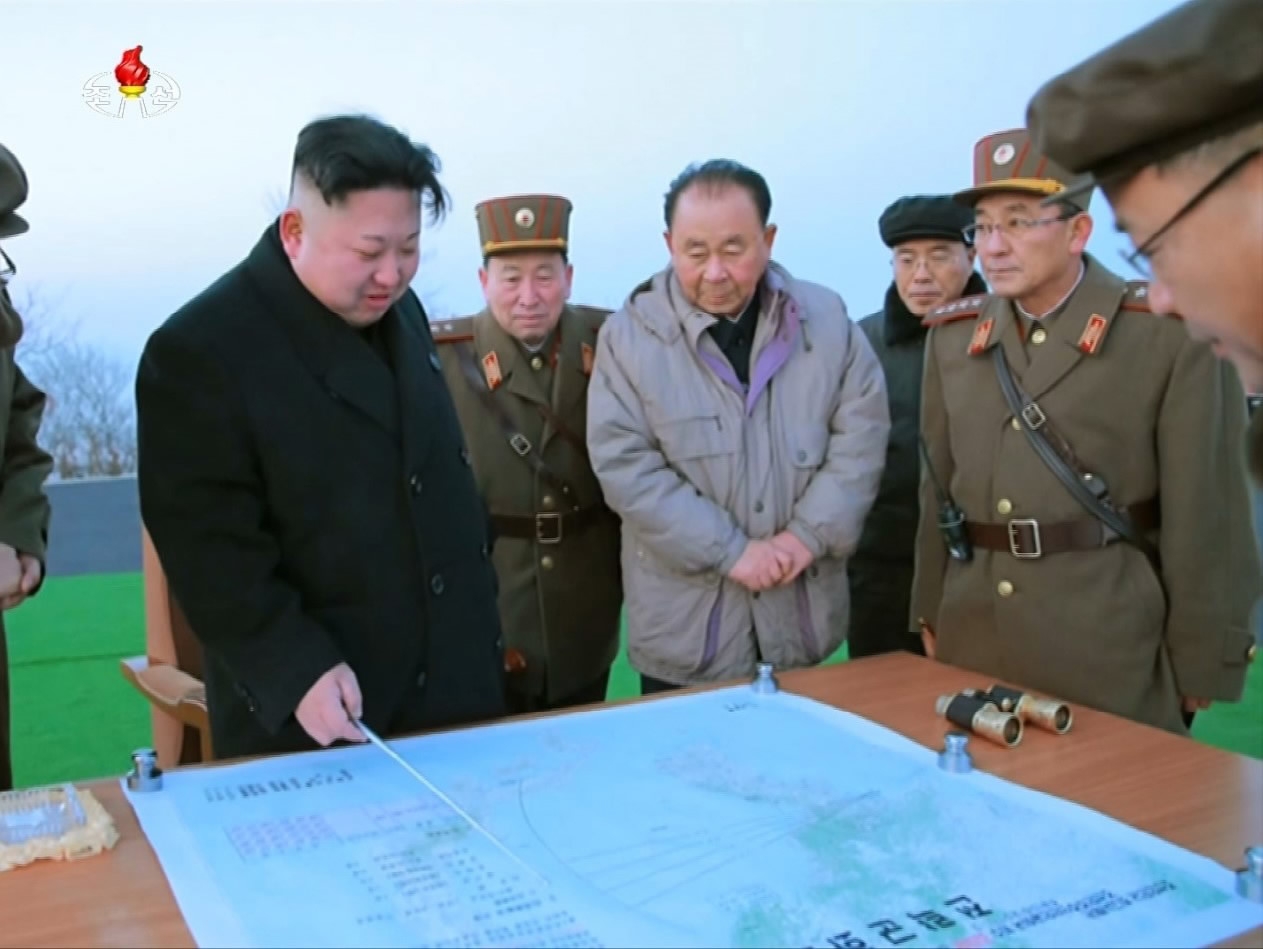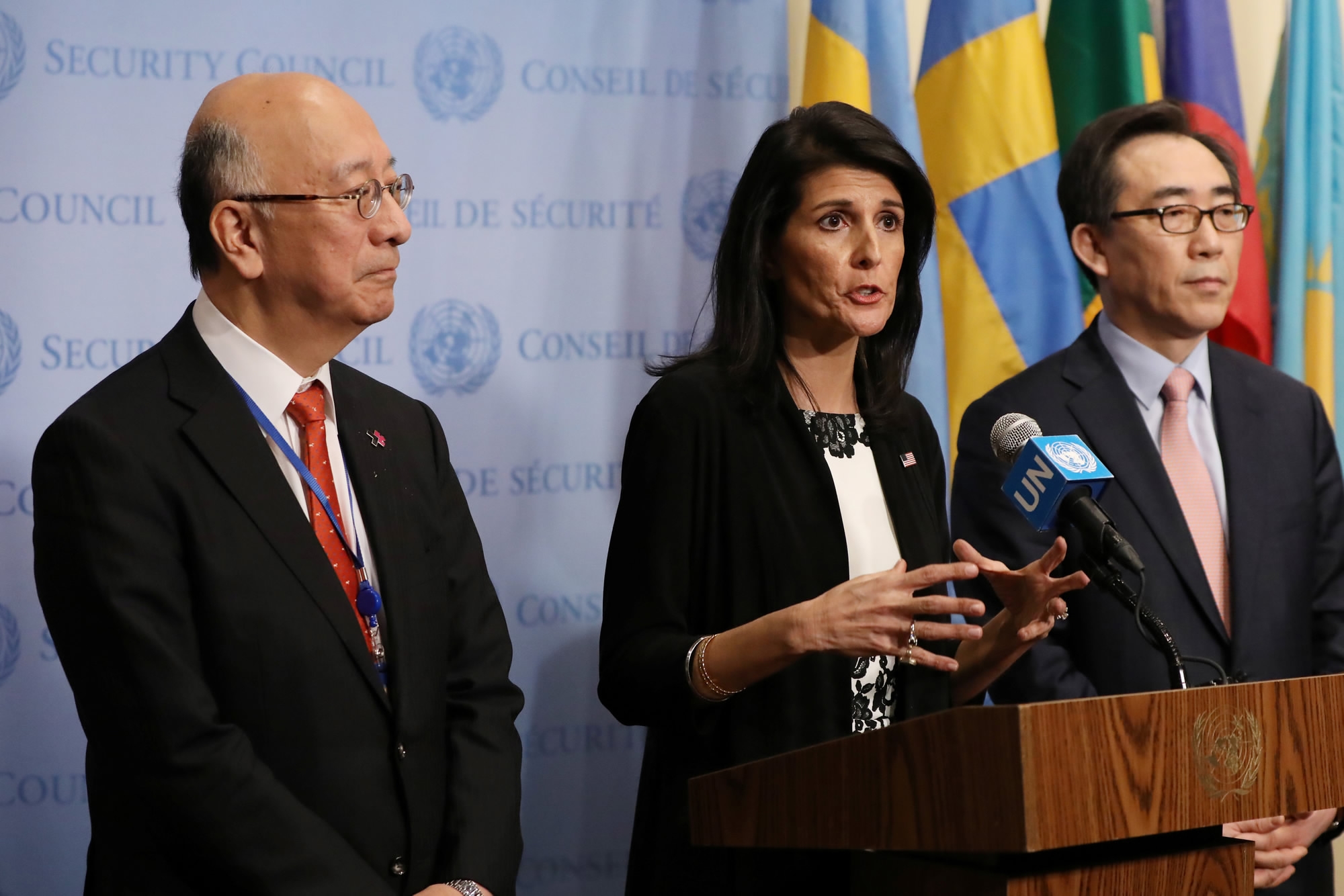Chinese Foreign Minister Wang Yi on Wednesday urged the DPRK to halt all nuclear and missile tests just two days after Pyongyang launched four ballistic missiles in a latest act of defiance against UN resolutions.
Speaking at a news conference at the Two Sessions meeting in Beijing, Wang compared the growing tension on the Korean peninsula to “two accelerating trains, coming towards each other with neither side willing to give way.”

Chinese Foreign Minister Wang Yi speaks to the press on the sidelines of the 12th National People's Congress in Beijing on March 8, 2017. /CFP Photo
“The question is: are the two sides really ready for a head-on collision?” he said, calling on all sides to “apply the brakes”.
"China proposes that as a first step to defusing the looming crisis, DPRK suspend its nuclear and missile activities in exchange for a halt in the US and South Korea's military exercises,” he also told domestic and foreign media.
This would help “break out of the security dilemma and bring the parties back to the negotiating table.”
Wang’s comments came just two days after the DPRK announced it had launched four ballistic missiles, three of which came down near Japan, according to Tokyo. The missiles were “tasked to strike the bases of the US imperialist aggressor forces in Japan in contingency," the DPRK’s official Korea Central News Agency (KCNA) reported.

DPRK leader Kim Jong-un with military advisers. /CFP Photo
The launches - following several others last year, as well two nuclear tests - drew condemnation from the ROK, the US and the United Nations.
They also come as Seoul and Washington are conducting large-scale joint military exercises with tens of thousands of troops.
On Wednesday, US ambassador to the UN Nikki Haley rejected China’s proposal for a “double suspension” insisting that “all options remain on the table” in dealing with the DPRK, Reuters reported.
“We think that all of our counterparts need to impose the sanctions that have already been put in place,” she urged.

US ambassador to the United Nations Nikki Haley speaks while Japan's U.N. Ambassador Koro Bessho (L) and South Korea's U.N. Ambassador Cho Tae-yul (R) look on at the United Nations in New York, US on March 8, 2017. /CFP Photo
The US announced this week it had started deploying elements of its THAAD anti-missile defense system in the ROK, in a move strongly criticized by China and Russia.
The DPRK has been under UN sanctions since 2006 in a bid to halt its nuclear and ballistic missile program.
0km










